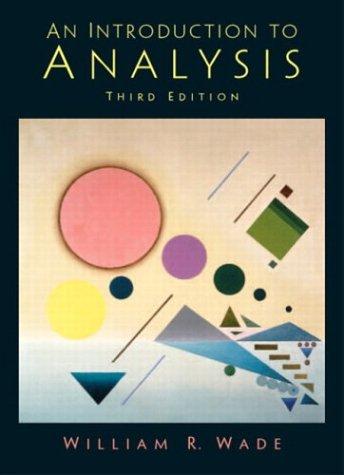5. First show that JI f(x) dx = 0 for all subintervals I of [a, b]. 8....
Question:
5. First show that JI f(x) dx = 0 for all subintervals I of [a, b].
8.
(a) Notice that IXj - xj-11 :S IIPII for each j = 1,2, ... , n.
5.2 Riemann Sums 597 1.
(a) 1/4.
(b) 7ra2/4.
(c) 9.
(d) (3/2)(b2 - a2 ) + (b - a). (Note: If a ~ -1/3 or b:S -1/3, the integral represents the area of a trapezoid; if a < -1/3 <
b, the integral represents the difference of the areas of two triangles, one above the x axis and the other below the x axis.)
3. Do not forget that f is bounded.
5.
(b) You may use the fact that J xn dx = xn+l /(n + 1).
Fantastic news! We've Found the answer you've been seeking!
Step by Step Answer:
Related Book For 

Question Posted:





